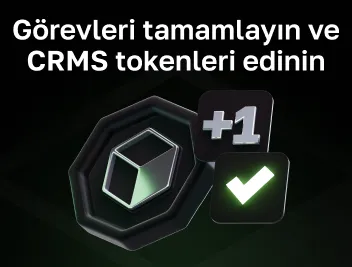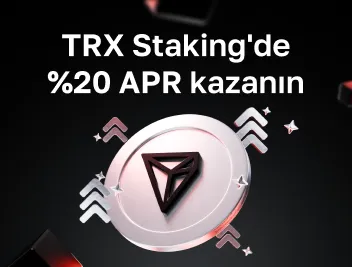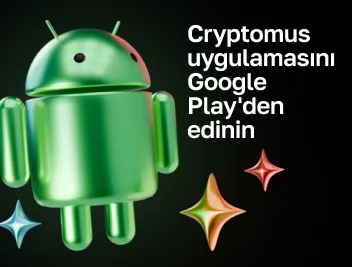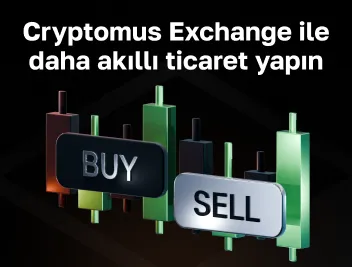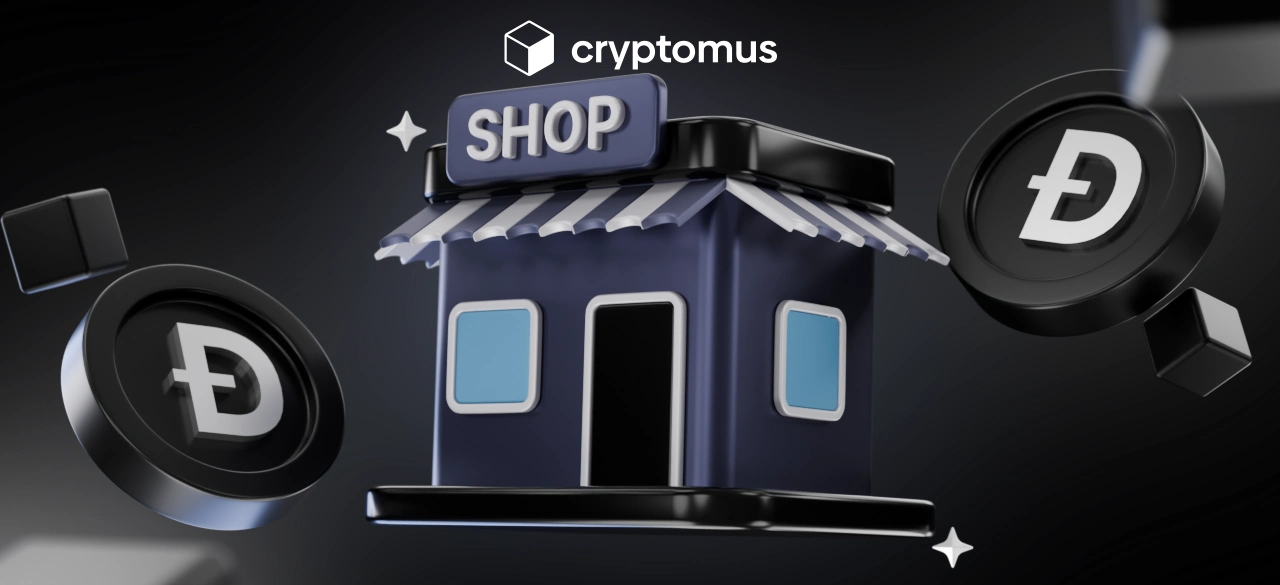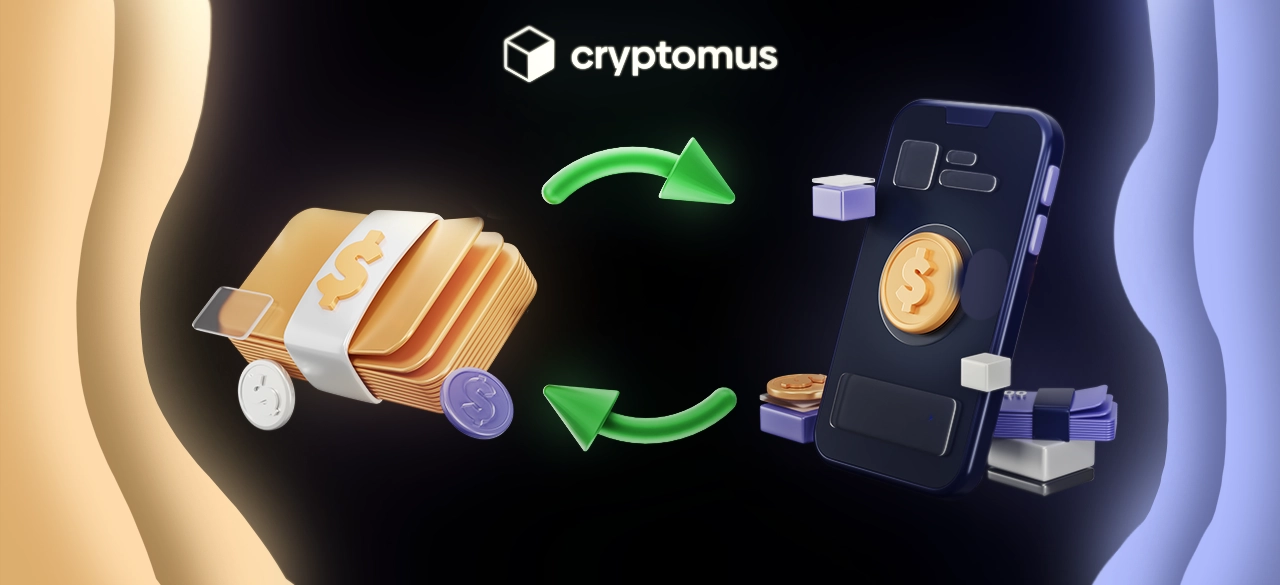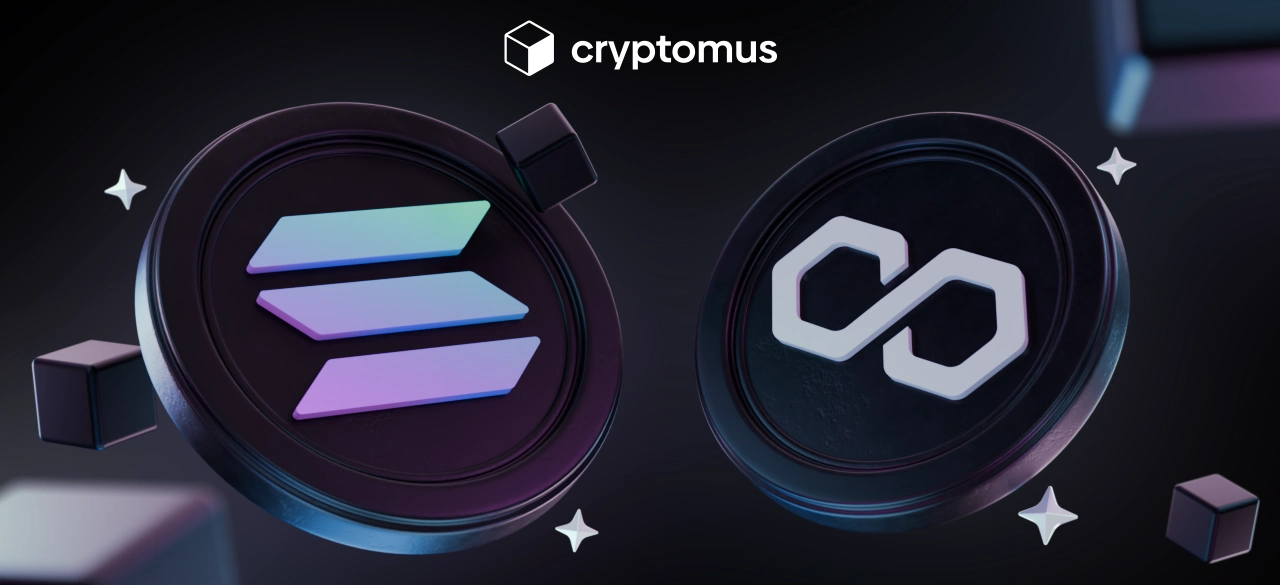
Solana ve Polygon: Tam Karşılaştırma
İçindekiler
Blockchain dünyası genişlerken, her gün daha hızlı, daha ucuz ve daha verimli olduğunu iddia eden yeni bir platform ortaya çıkıyor. Bunların arasında, kripto alanına kendi lezzetini getiren en iyi yarışmacılardan ikisi olarak öne çıkan Solana (SOL) ve Polygon (MATIC) yer alıyor.
İster yıldırım hızındaki işlemlerle ister uygun ücretlerle ilgileniyor olun, bu iki platform farklı ihtiyaçlara uygun belirgin avantajlar sunuyor. Bu kılavuzda, Solana ve Polygon arasındaki temel farkları ele alacağız ve bir sonraki yatırımınız için hangisinin doğru seçim olabileceğine karar vermenizi kolaylaştıracağız.
Solana (SOL) Nedir?
Solana merkezi olmayan uygulamaları (dApps) ve kripto para birimlerini desteklemek için tasarlanmış bir blockchain platformudur. 2020 yılında piyasaya sürülen Solana, Bitcoin ve Ethereum gibi önceki ağların sahip olduğu yavaş işlem süresi ve yüksek ücretler gibi blockchain dünyasındaki en büyük zorluklardan bazılarını çözmek için yaratıldı.
Daha fazlasını okuyun:
Platform, işlemleri diğer birçok blockchain'den daha hızlı işlemesini sağlayan Proof-of-History (PoH) adlı benzersiz bir fikir birliği mekanizması kullanıyor.
Solana, DeFi (merkezi olmayan finans) platformlarından NFT (değiştirilemez token) pazar yerlerine kadar çok çeşitli projeleri içeren gelişen bir ekosistemi hızla kurdu. Yani, Solana'daki en popüler projeler merkezi olmayan borsa Serum ve NFT pazar yeri Solanart'tır. Ağın yerel kripto para birimi olan SOL, bu ekosistemde hayati bir rol oynar ve staking, NFT alım satımı ve daha fazlası için kullanılır.
Yeni başlayanlar için Solana, yavaş hızlar ve yüksek ücretlerin olağan baş ağrıları olmadan blok zinciri dünyasını keşfetmek için heyecan verici bir fırsat sunar. İster yatırım yapmak, ister geliştirmek veya sadece teknoloji hakkında daha fazla bilgi edinmek isteyin, Solana merkezi olmayan finans dünyasına kullanıcı dostu bir giriş noktası sunar.
Polygon (MATIC) Nedir?
Eskiden Matic Network olan Polygon, işlemleri daha hızlı ve daha ucuz hale getirerek Ethereum geliştirmek için tasarlanmış bir Katman 2 ölçekleme çözümüdür. Ethereum en popüler blok zincirlerinden biri olmasına rağmen, yoğun kullanım nedeniyle genellikle yüksek ücretler ve yavaş işlem süreleriyle mücadele eder. Polygon, işlemleri zincir dışında işleyerek ve ardından bunları Ethereum'da güvence altına alarak bu sorunları çözmek için Ethereum ile birlikte çalışır. Maliyetleri büyük ölçüde azaltır ve hızı artırır.
MATIC, Polygon'un yerel kripto para birimidir ve işlem ücretlerini ödemek, ağı stake ederek güvence altına almak ve yönetim kararlarına katılmak için kullanılır. Polygon, Ethereum'un faydalarını yüksek ücretler olmadan isteyen geliştiriciler ve kullanıcılar için popüler bir seçim haline geldi. Bu ölçeklenebilirlik ve maliyet etkinliği, onu merkezi olmayan finans (DeFi), NFT'ler ve diğer blok zinciri tabanlı uygulamaları keşfetmek için erişilebilir bir seçenek haline getirir.
Özetle, Polygon, Ethereum için bir "güçlendirici" görevi görerek, Ethereum ekosistemiyle etkileşime girmenin daha hızlı ve daha ucuz bir yolunu sunarken güvenliğinden ve gelişmiş ağından yararlanır.
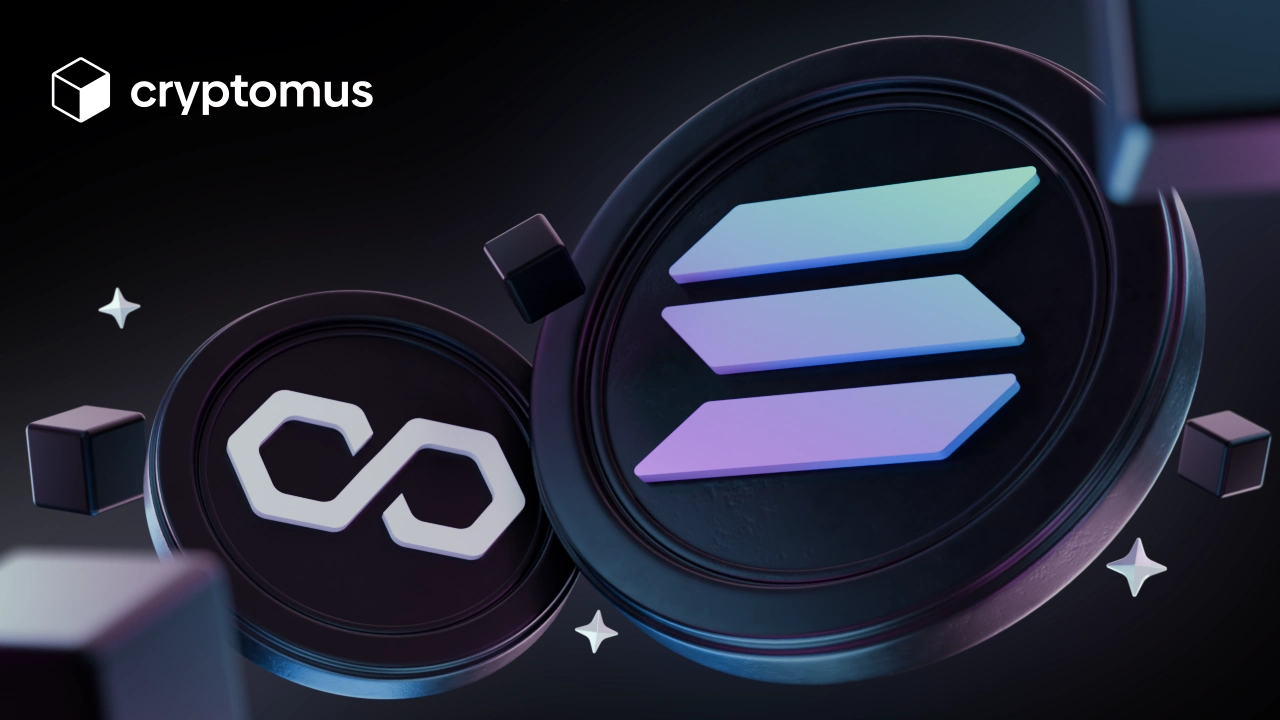
Solana ve Polygon: Temel Farklar
Solana ve Polygon'un yan yana nasıl göründüğünü daha iyi anlamanıza yardımcı olmak için, temel farklarını keşfedelim. Her iki platform da blok zinciri performansını ve kullanıcı deneyimini iyileştirmeyi hedeflerken, bu hedeflere ulaşmak için farklı yaklaşımlar benimsiyorlar. Solana ve Polygon'u birbirinden ayıran şeylere daha yakından bakalım.
Mutabakat Mekanizması
Solana, Proof-of-History (PoH) ile Proof-of-Stake (PoS)'u birleştiren benzersiz bir mutabakat mekanizması kullanır. PoH, işlemlerin kronolojik bir kaydını sağlayarak bunların paralel olarak işlenmesine olanak tanır. İşlem hızını artırır ve gecikmeyi azaltır. Bu mekanizma, doğrulayıcıların stake ettikleri token sayısına göre seçildiği PoS ile tamamlanır. Bu önlem hem işlem doğrulamasını hem de ağ güvenliğini sağlar.
Buna karşılık, Polygon Ethereum için bir Katman 2 çözümü olarak çalışır ve öncelikle fikir birliği için Proof-of-Stake (PoS) kullanır. Polygon'daki doğrulayıcılar, stake edilmiş MATIC token'larına göre seçilir ve işlemleri Ethereum'un ana ağına göndermeden önce zincir dışında işlerler. Polygon ayrıca işlemleri verimli bir şekilde işlemeye ve sonlandırmaya yardımcı olan Plasma ve Rollups gibi ek ölçekleme teknolojilerini kullanır. Bu kurulum, Polygon'un güvenliğini korurken Ethereum'un ölçeklenebilirliğini artırmasına olanak tanır.
İşlem Hızı
Solana ve Polygon arasındaki en önemli farklardan biri işlem hızlarıdır. Solana, saniyede 65.000'e kadar işlemi (TPS) işleyebilen yıldırım hızındaki işlem işleme özelliğiyle bilinir. Bu hız, ağın işlemleri paralel olarak işlemesine olanak tanıyan Solana'nın benzersiz Proof-of-History konsensüs mekanizması sayesinde elde edilir.
Bunun aksine, Ethereum için bir Katman 2 çözümü olan Polygon, temel katmanına bağlıdır. Aynı zamanda, birden fazla işlemi tek bir işlemde birleştirerek işlem verimini önemli ölçüde artırır. Polygon, Ethereum'un temel katmanından önemli ölçüde daha hızlı ancak Solana'dan daha yavaş olan yaklaşık 7.000 TPS'lik bir hıza ulaşabilir.
İşlem Ücretleri
İşlem ücretleri, Solana ve Polygon'un farklılaştığı bir diğer önemli faktördür. Solana, genellikle işlem başına 0,00025 ila 0,01 ABD Doları arasında değişen inanılmaz derecede düşük ücretleriyle bilinir. Bu ultra düşük maliyet, Solana'yı yüksek frekanslı ticaret, mikroişlemler ve ücretlerden tasarruf etmenin önemli olduğu diğer faaliyetler için mükemmel bir seçim haline getirir.
Karşılaştırıldığında, Polygon genellikle 0,01 ila 0,10 dolar (kabaca 1 ila 10 gwei) arasında değişen işlem ücretleri alır. Bu ücretler, işlem başına yaklaşık 20 ila 100 gwei (ağ koşullarına bağlı olarak yaklaşık 0,05 ila 1,00 dolara eşdeğer) arasında değişebilen Ethereum'un genellikle yüksek ücretlerinden önemli ölçüde düşük olsa da, genellikle Solana'nınkinden daha yüksektir. Polygon'un Ethereum'a kıyasla daha düşük ücretleri, onu Ethereum tabanlı uygulamaları ölçeklendirmek için uygun maliyetli bir çözüm haline getirir, ancak Solana'nın ücretleri blok zinciri alanındaki en düşük ücretler arasındadır.
Güvenlik
Güvenlik söz konusu olduğunda, hem Solana hem de Polygon'un güçlü yönleri vardır. Solana'nın Proof-of-History'si, Proof-of-Stake ile birleştirildiğinde, ağın bütünlüğünü korumada etkili olduğu kanıtlanmış güçlü bir güvenlik modeli sunar. Ancak Solana, güvenilirliği konusunda endişelere yol açan ara sıra yaşanan ağ kesintileri de dahil olmak üzere bazı zorluklarla karşı karşıya kaldı.
Öte yandan Polygon, bir Katman 2 çözümü olduğu için Ethereum'un güvenlik modelinden yararlanıyor. Polygon'daki işlemler, nihayetinde dünyanın en güvenli blok zinciri ağlarından biri olan Ethereum tarafından güvence altına alınıyor. Bu, Polygon'u güvenliğe öncelik veren ancak daha hızlı ve daha ucuz işlemler gerektiren projeler için çekici bir seçenek haline getiriyor.
Solana ve Polygon: Hangisi Daha İyi Bir Satın Alma?
Solana'nın mı yoksa Polygon'un mu daha iyi bir yatırım olduğuna karar vermek, finansal hedefleriniz, risk toleransınız ve belirli ekosistemlere olan ilginiz gibi çeşitli faktörlere bağlıdır.
- Ethereum ağıyla güçlü entegrasyona, daha düşük işlem ücretlerine ve mevcut merkezi olmayan uygulamaların geniş bir yelpazesine değer veriyorsanız Polygon Solana'dan daha iyi olabilir. Projelerini Ethereum ekosistemi içinde ölçeklendirmek ve yerleşik altyapısını kullanmak isteyenler için idealdir.
- Ultra hızlı işlem hızlarına ve son derece düşük ücretlere öncelik veriyorsanız Solana daha iyi olabilir. Bağımsız blok zinciri mekanizması saniyede 65.000'e kadar işlem gerçekleştirmesini sağlayarak yüksek frekanslı ticaret ve yenilikçi uygulamalar için uygun hale getirir. Ancak bazı ağ kararlılığı sorunlarıyla karşı karşıya kalmıştır.
Sonuç olarak, seçim Polygon'un güvenliğini ve mevcut merkezi olmayan uygulamalarla kapsamlı entegrasyonunu mu yoksa bağımsız bir blok zinciri olarak Solana'nın yüksek hızlı performansını ve ultra düşük işlem ücretlerini mi tercih ettiğinize bağlıdır. Her iki platformun da kendine özgü güçlü yönleri ve benzersiz avantajları vardır, bu nedenle yatırım seçiminiz belirli ilgi alanlarınıza ve hedeflerinize uygun olmalıdır.
Solana Vs. Polygon: Baş Başa Karşılaştırma
Ana noktaları özetleyelim. Aşağıdaki tablo, Solana ve Polygon arasındaki temel özelliklerin ve farklılıkların açık ve öz bir karşılaştırmasını sunar. Hangi platformun ihtiyaçlarınıza ve yatırım hedeflerinize daha uygun olduğunu değerlendirmenize yardımcı olacaktır.
| Özellik | Solana (SOL) | Polygon (MATIC) | |
|---|---|---|---|
| Lansman Yılı | Solana (SOL)2020 | Polygon (MATIC)2017 | |
| Uzlaşma Mekanizması | Solana (SOL)Geçmiş Kanıtı (PoH) + Hisse Kanıtı (PoS) | Polygon (MATIC)Hisse Kanıtı (PoS) | |
| İşlem Hızı | Solana (SOL)65.000 TPS'ye Kadar | Polygon (MATIC)~7.000 TPS | |
| Ortalama İşlem Ücreti | Solana (SOL)0,00025 ABD Doları - 0,01 ABD Doları | Polygon (MATIC)0,01 ABD Doları - 0,10 ABD Doları | |
| Birincil Kullanım Örneği | Solana (SOL)Yüksek hızlı işlemler, DeFi, NFT'ler | Polygon (MATIC)Ethereum, DeFi, NFT'leri Ölçekleme | |
| Yerel Kripto Para Birimi | Solana (SOL)SOL | Polygon (MATIC)MATIC | |
| Ağ Türü | Solana (SOL)Bağımsız blok zinciri | Polygon (MATIC)Ethereum için Katman 2 çözümü | |
| Güvenlik Modeli | Solana (SOL)PoH ve PoS ile kendi güvenlik modeliniz | Polygon (MATIC)İşlemleri Ethereum'un güvenliği aracılığıyla güvence altına alır |
Solana ve Polygon arasındaki bu karşılaştırmayı tamamlarken, her iki platformun da blok zinciri teknolojisinin zorluklarına heyecan verici ve yenilikçi çözümler sunduğu açıktır. Solana'nın yıldırım hızındaki işlem hızları ve inanılmaz derecede düşük ücretleri, performans ve verimlilik için yeni bir ölçüt belirleyerek, onu en son teknolojiyi talep edenler için çekici bir seçim haline getirir. Öte yandan, Polygon yalnızca ölçeklenebilirlik ve azaltılmış ücretler sağlamakla kalmaz, aynı zamanda Ethereum ağının sağlam güvenliğinden de yararlanır ve köklü güvenlik protokollerini devralır. Bu, Polygon'u Ethereum tabanlı projeler için pratik bir geliştirme haline getirir.
Sonuç olarak, Solana ve Polygon arasında seçim yapmak, bireysel ihtiyaçlarınıza ve ilgi alanlarınıza bağlıdır. İster Solana'nın hızına ve bağımsızlığına, ister Polygon'un Ethereum ağı için bir güçlendirici rolüne çekiliyor olun, performansını, ölçeklenebilirliğini artırarak ve işlem ücretlerini azaltarak, her iki platform da blok zinciri alanında önemli ilerlemeleri temsil eder. Okuduğunuz için teşekkür ederiz!
Kripto Yolculuğunuzu Basitleştirin
Kripto para birimlerini depolamak, göndermek, kabul etmek, stake etmek veya takas etmek mi istiyorsunuz? Cryptomus ile hepsi mümkün — kaydolun ve kullanışlı araçlarımızla kripto para birimi fonlarınızı yönetin.
Başla
